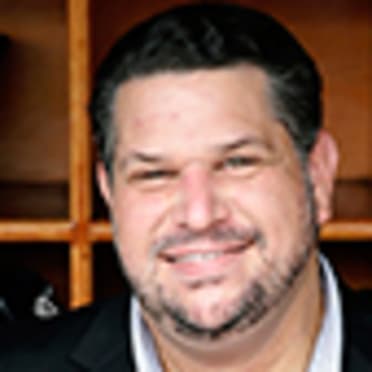Ever since the business of baseball opened up late Thursday night, the trade market has eclipsed the free-agent market in terms of headlines, as seven All-Stars have changed uniforms.
The biggest deal saw Matt Olson shipped from Oakland to Atlanta, as the Braves sent a four-player package led by Shea Langeliers and Cristian Pache, the club’s No. 1 and 3 prospects, respectively. The Athletics also traded Chris Bassitt -- an All-Star last season -- to the Mets.
The Yankees sent former All-Star Gary Sánchez to the Twins in a five-player deal that put 2015 AL MVP Josh Donaldson in pinstripes. The Reds moved three former All-Stars -- Sonny Gray, Jesse Winker and Eugenio Suárez -- in separate deals with the Twins and Mariners.
The deals signaled the beginning of a rebuilding effort for both the Athletics and Reds, who could move more players either before the season starts or by the Trade Deadline this summer.
“This is just the beginning, certainly for Oakland,” one NL executive said. “They’re definitely not done.”
Having already moved Olson and Bassitt, the Athletics are expected to shop Matt Chapman, Sean Manaea, Frankie Montas and perhaps Stephen Piscotty. Chapman, Montas and Piscotty are all under club contractual control through 2023, while Manaea is slated to become a free agent after this season. Another Oakland trade candidate to watch is Lou Trivino, who is under club control for three more years.
Cincinnati could still look to trade Luis Castillo and/or Tyler Mahle, as teams in search of rotation help don’t have many options via free agency. Both Castillo and Mahle are under control through the 2023 season.
Olson is eligible for salary arbitration both this season and next, so Oakland collected a haul of prospects while unloading his potential paydays in 2022 and ’23. That would also be the case should Chapman be traded, while Manaea is also likely to earn a nice raise in his final year of arbitration.
For the Reds, the decision to trade Gray, Winker and Suárez was also about trimming payroll, as the club saved about $50 million with those deals. Cincinnati also let Wade Miley go to the Cubs on a waiver claim early in the offseason, knocking another $10 million off the payroll.
With the Athletics and Reds making a number of their top players available, the trade market figures to remain active between now and Opening Day.
Houston homecoming?
Carlos Correa was the consensus No. 1 free agent entering the offseason, and while more than $1.6 billion was handed out in free agency prior to the lockout, the All-Star shortstop was among the list of high-profile free agents not to sign before Dec. 2.
Finding a team willing to sign Correa to the deal he seeks -- he is said to be looking for at least the 10 years and $325 million the Rangers gave Corey Seager this winter -- has been difficult, as the number of teams that can both afford him and have a need at his position is small.
Even before December, some agents and executives were of the belief that Correa might have to take a lesser deal with an opt-out clause after 2022 and 2023, giving him an opportunity to test the market again in either of the next two offseasons.
The Astros have maintained contact with Correa’s camp -- well, both of them, actually, as the shortstop changed agents in January, hiring Scott Boras -- throughout the winter, keeping the door open for a return to Houston. It’s highly unlikely that the Astros would give Correa the type of deal he wants, but Houston would be a logical landing spot if he wants to reestablish his market and give free agency another shot next winter.
“It would be a no-lose for the Astros,” an NL executive said. “They would get to keep one of the best players in the game -- one they’re very familiar with -- without having to lock him up for a decade.”
Creative contracts
As agents work to get their clients signed for 2022 and beyond, some have gotten very creative with options and opt-out clauses
That’s what we’re finding out this week, as a pair of deals for starting pitchers contained interesting stipulations.
Justin Verlander’s deal with the Astros had been widely reported as a one-year, $25 million contract with a player option for $25 million in 2023. According to a source, however, Verlander -- who is returning from his October 2020 Tommy John surgery -- must throw at least 130 innings in 2022 for that player option to kick in. If he throws fewer than 130 innings, the option disappears, making it a simple one-year deal.
Given that Verlander has thrown just six innings since his 2019 Cy Young season, the clause protects the Astros in the event that the 39-year-old struggles in his return from surgery or faces another serious injury.
Carlos Rodón’s two-year, $44 million contract with the Giants has a similarly interesting clause, though this one protects the pitcher more than his new club.
The left-hander, who had a breakout season in 2021, can opt out of the second year of the deal if he throws at least 110 innings this season. If he fails to reach that number, the second year of his deal becomes guaranteed with San Francisco, protecting Rodón in the event of a major injury. Then again, should he struggle through this upcoming season, it would be unlikely that he would trigger his opt-out clause, anyway.
